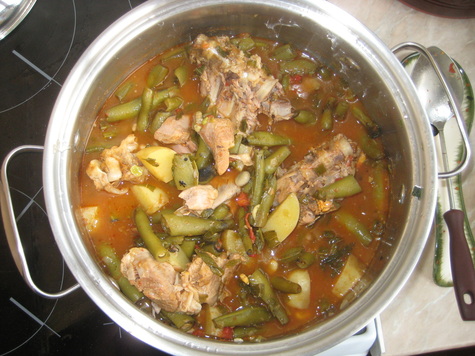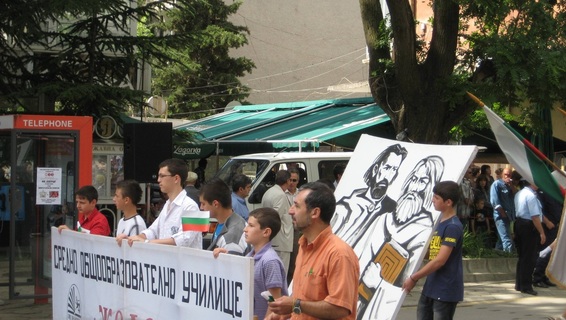After 31 years and thousands of animals ingested, today was the first day I saw the meat I was going to eat slaughtered and cleaned right in front of me. In our attempt to avoid factory farmed meat, Neda’s Dad Petko found a local farm that sold goats and lambs (as well as the cheese and milk produced by them) and this morning we went off to buy a little goat. I asked if we could go early to witness the process of slaughter. It sounds like a morbid request, but let me explain.
From the age of 18-23, I was a vegetarian. I had read about the terrible conditions that most animals endure while moving through the meat industry and decided I didn’t want to participate in that system. However, while in university I took a class on applied ethics related to our relationships with animals and one of the books we read was Blood Ties by Ted Kerasote. In the book, Kerasote discusses the sustenance hunting that he performs while living a simple life near the Grand Teton Mountains. For him, taking the life of an animal in order to live is an act of engagement with the cycle of nature. It is coming to terms with the fact that all of life is built upon death. The question for us as humans is how to find a way to participate in the cycle of nature responsibly. The book convinced me that it could be ethical to eat meat if the animal was raised in respectful conditions and if it was sustainable for the environment. However, it also left me with a commitment to see my meat killed (and if possible kill it myself) so I couldn’t turn away from the exact process of how this food gets onto my table.
The request to go early to see the goat's death probably seemed strange to Petko, who grew up in a farming village and saw animals killed for his dinner regularly. But for this suburbanite, it was an opportunity to fulfill a commitment I was never able to fulfill in America. So off we went to this little farm. As we approached, a horde of puppies, dogs, kittens, and chickens mobbed our car. It reminded me of SE Asia, where animals are simply everywhere. The farmhand took the little goat out of the pen and I saw him running around, looking for his mother and her milk. Then the farmer tied up the goat, brought him over to a concrete block, and cut this throat. He died almost immediately, but the sight of the blood and the convulsing body made me nauseous and made me want to cry at the same time. How had I never seen this? How have I never taken full responsibility for what I was doing when I eat meat? In our society the whole process is so sterilized – you can go into a restaurant and order a hamburger and have literally no connection to the cow from which the “burger” came. I recognize that for most of the meat I eat in the future, it is unavoidable that I will have no substantial relationship with it. But the goat helped me to really face the actual consequences of my actions. By seeing its death, I can be more respectful of the life that was taken for my benefit and more conscious of my place within the cycle. For this I give thanks.

The goat stew that Nadia made with the goat we bought today
As for our last post regarding my health, I am doing much better with some TLC from Nadia and Petko here in Bulgaria. Unfortunately, Neda came down with a high fever as well after returning from Vietnam (possibly Dengue as well) and has been recovering the past week, but she also seems to be out of the worst of it and on the road to recovery. Yesterday (24th of May) was a national celebration here of the creation of the Bulgarian Alphabet and written language by missionaries Cyril and Methodius in the 860s. Now, a 4 day weekend to continue recovering and think about next travels!

Cyril and Methodius feature prominently in the parade to celebrate the Bulgarian Alphabet